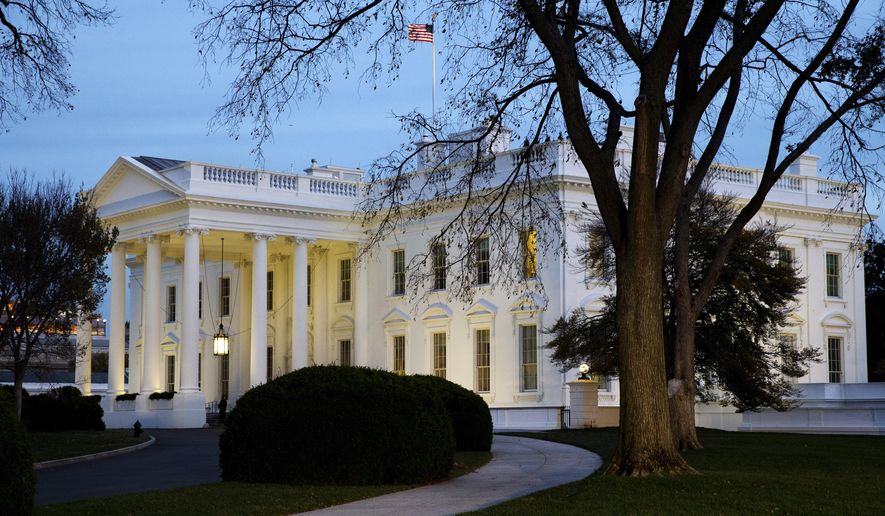A White House official told the House Oversight and Reform Committee that the Trump administration has reversed 25 denials for security clearance, prompting the panel to schedule a vote Tuesday to issue its first subpoena of a presidential staffer involved in the screenings.
Tricia Newbold, a whistleblower who has been a White House security adviser for 18 years, told lawmakers that the security clearances for various administration officials were approved regardless of concerns over blackmail and foreign influences.
“I would not be doing a service to myself, my country, or my children if I sat back knowing that the issues that we have could impact national security,” she told committee investigators in closed testimony.
The development came as House Democrats also announced plans to subpoena the full work product of special counsel Robert Mueller, in addition to his still-confidential report.
Among the White House officials whose security clearances are being questioned by the committee are the president’s daughter, Ivanka Trump; her husband, Jared Kushner; and national security adviser John R. Bolton, Committee Chairman Elijah E. Cummings said in a letter to White House Counsel Pat Cipollone.
“In light of the grave reports from this whistleblower — and the ongoing refusal of the White House to provide the information we need to conduct our investigation — the committee now plans to proceed with compulsory process and begin authorizing subpoenas, starting at tomorrow’s business meeting,” the Maryland Democrat wrote.
Mr. Cummings said the committee intends to issue subpoenas for administration officials, starting with Carl Kline, who served as the personnel security director at the White House during the first two years of the Trump administration and who now works at the Department of Defense.
But Rep. Jim Jordan of Ohio, the top Republican on the committee, accused Mr. Cummings of politicizing an issue that should be bipartisan.
“Chairman Cummings’ investigation is not about restoring integrity to the security clearance process, it is an excuse to go fishing through the personal files of dedicated public servants,” Mr. Jordan said in a statement. “The process by which this matter has so far progressed has been anything but fair.”
He said the chairman mischaracterized at least some of the 25 security-clearance cases, noting that one of them involved a custodian at the General Services Administration.
Ms. Newbold identified seven problems in the 25 applications: drug use, criminal conduct, foreign influence, foreign preference, outside activities, personal conduct, and financial consideration, Mr. Jordan said. She testified that only three individuals were senior-level employees who worked at the White House.
The lawmaker also said Ms. Newbold didn’t know the reasons why security clearances were granted for two senior White House officials over her objections.
“Some of the applicants Ms. Newbold testified about did not advance to a clearance because their job duties did not require it,” Mr. Jordan said in a memo. “As Ms. Newbold acknowledged in the transcribed interview, the president retains ultimate authority to grant access to national security information to anyone he chooses.”
He added, “Her testimony focused on a series of personnel and workplace complaints that suggest she is unhappy and dissatisfied in her office.”
Ms. Newbold expressed concern about testifying, asserting that she has already faced retaliation for disagreeing with other White House officials about the security clearances.
She said she was suspended without pay for 14 days in January, was removed from her position as a “second-level adjudicator” on security clearances and no longer is a direct supervisor.
“I’m terrified of going back,” she told lawmakers. “I know that this will not be perceived in favor of my intentions, which is to bring back the integrity of the office.”
Several news outlets have reported that Mr. Trump last year directed then-Chief of Staff John F. Kelly to give Mr. Kushner a top-secret security clearance, which he did despite apparent reluctance.
Mr. Cummings said his committee hasn’t received any documents from the White House in the investigation of security clearances.
The whistleblower’s accusations come as House Democrats and the White House are stepping up their feud over Congress’ access to presidential records and witnesses.
House Democrats also said they will issue their first subpoena in the Mueller probe, saying they’ll demand not only the special counsel’s final report but his entire investigative work product.
Rep. Jerrold Nadler, New York Democrat and Judiciary Committee chairman, announced that his panel would meet Wednesday to vote on the subpoena.
“Congress requires the full and complete special counsel report, without redactions, as well as access to the underlying evidence,” he said in a statement.
⦁ Stephen Dinan contributed to this report.
• Dave Boyer can be reached at dboyer@washingtontimes.com.




Please read our comment policy before commenting.